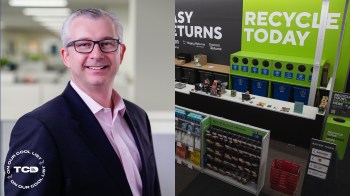No matter how responsibly we try to live, it's impossible not to create pollution in some way. How we eat, how we power our homes, and how we get around create some amount of pollution.
But just because our food was shipped from hundreds of miles away or our car runs on gas doesn't mean we can't decrease our personal pollution footprints. Some companies and individuals are turning to carbon offsets to do their part.
What are carbon offsets?
Carbon offsets are certificates that represent activities that have reduced harmful carbon pollution from the atmosphere.
These buyable and tradeable certificates are associated with projects that either (1) Keep pollution from being put into the air; (2) Remove planet-overheating gas directly from the atmosphere; or (3) Produce clean energy, thereby lowering the use of dirty fuels that pollute the air.
Some carbon offsetting projects protect forests, plant trees, restore mangroves, or even fund clean energy projects.
Why are carbon offsets important?
Carbon offsets can reduce the gases that overheat our planet and fuel extreme weather events. There's no doubt that limiting the amount of pollution in the air is a good thing.
Despite their potential, carbon offset programs have received an enormous amount of criticism in recent years. A recent analysis by the Guardian and Corporate Accountability found that many of the largest offset projects failed to reduce pollution levels from the atmosphere, while others lacked the transparency to definitively prove their efficacy.
On the other end of the spectrum, Wren, a company that sells offsets, has acknowledged the need for greater transparency. The company is making strides in the industry by providing regular updates and reports on projects and project verification by third parties.
Wren also helps users find other ways to lower their environmental impact, acknowledging that offsets can't be the entire solution.
Dirty energy giants, like ExxonMobil and Shell, have routinely been ensnared in scandals that show their carbon offsetting investments weren't helpful for cooling down the planet.
Luckily, to address the issues in the carbon offset industry, the Biden administration recently rolled out government guidelines to protect against greenwashing and faulty projects.
John Podesta, a senior climate advisor to President Biden, told the New York Times, "We need to mobilize enormous amounts of private capital … [offsets] can support clean energy deployment in developing countries that can benefit most from new investment."
How carbon offsets help with our planet's overheating
The current market for carbon offsets worldwide is enormous. Last year, individuals and corporations voluntarily spent $1.7 billion on carbon offsets to reduce their environmental impact. When done right, the potential of the offsetting industry is much larger.
Nat Keohane, who runs the Center for Climate and Energy Solutions, explained to the New York Times that "there are credible estimates that the voluntary carbon market could grow to 10 or 20 times what it is today, and then you'd be talking about real money to tackle climate change."
Despite the sectors' many challenges, we need to consider myriad ways to keep our planet from overheating. This includes carbon offsets, many of which are voluntarily purchased by individuals and corporations.
Buying carbon offsets can help connect you to projects fighting the planet's overheating. It can also empower you to take more steps to protect the environment.
Giving money to projects that aim to lower pollution is a great step, but we must prioritize limiting our use and burning of dirty fuels to stop the Earth's overheating.
There are many ways individuals can make a difference too. For one thing, you can advocate for change at work, perhaps by encouraging your company to work with a reputable carbon offset program.
Beyond that, signing up for community solar is a great way to incorporate clean energy into your life if you can't afford rooftop panels. Making your next car an EV can also help to decrease your pollution footprint while keeping our air freer of pollution.
Join our free newsletter for cool news and actionable info that makes it easy to help yourself while helping the planet.









